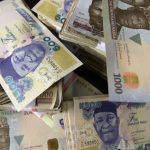
The Federal Government’s electricity subsidy has surged by 269%, rising from ₦650 billion in 2023 to an estimated ₦2.4 trillion in 2024.
This increase comes despite the implementation of the Band A tariff service category in April, which was expected to reduce subsidy obligations by ₦1.14 trillion.
Dr Yusuf Ali, Commissioner for Planning, Research, and Strategy at the Nigerian Electricity Regulatory Commission (NERC), revealed this during a presentation at PwC’s Annual Power and Utilities Roundtable in Lagos on Friday.
Speaking on “Reigniting Hope in Nigeria’s Electric Power Sector,” Dr Ali noted that macroeconomic shocks, particularly foreign exchange instability, have driven cost-reflective tariffs up by 118% between 2023 and 2024, contributing to the steep rise in subsidies.
“So right now, the best estimate that we have for 2024 is that the cumulative subsidy for the year will be ₦2.4 trillion,” Dr. Ali said.
He explained that while the government aimed to significantly reduce subsidies through tariff increases in April 2024, the challenging macroeconomic environment has hindered tariff payments.
“Without the tariff reforms implemented between 2020 and 2023, annual subsidies would have risen significantly, especially amidst the macroeconomic shocks of the past 20 months,” he added.
Minister of Power, Chief Adebayo Adelabu, represented by his Chief Technical Assistant, Adedayo Olowoniyi, highlighted the government’s efforts to address the challenges in the power sector. He emphasized that the current administration, under President Bola Ahmed Tinubu, recognizes energy as critical to economic growth and job creation.
“To ensure the sustainability of the energy sector, the Federal Government of Nigeria has implemented a multi-pronged approach spanning across legislation with the enactment of the Electricity Act 2023, policy framework with the development of an Integrated National Electricity Policy, and infrastructure development programmes to expedite expansion,” he said.
The minister outlined additional strategies, including leveraging bilateral funding, commercializing the sector to enhance viability, and collaborating with development partners to address bottlenecks in the Nigerian Electricity Supply Industry value chain.
“Our successes have not been without challenges. We have recorded frequent grid disturbances and dips in supply levels due to ageing infrastructure, resource limitations, capacity inadequacies, and consistent vandalism of transmission networks,” he noted.
To address these issues, the government has implemented short-term measures, such as enhancing maintenance plans for critical substations, replacing outdated equipment, and conducting data-driven analysis to prevent disruptions.
“For long-term strategies, we are finalizing plans for a super grid project to establish a more robust and resilient grid system,” the minister added. He concluded by emphasizing the importance of innovation, collaboration, and bold ideas to restore confidence in the sector.
“Today’s theme reminds us that hope is not a passive sentiment but an active commitment. We must continue to innovate and implement bold ideas to deliver an energy future where every Nigerian has access to reliable, affordable, and sustainable power.”



